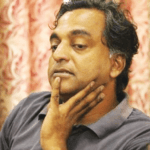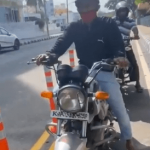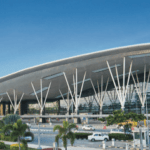To boost cycling in city, including HSR Layout
By ARUNA NATARAJAN
Last month, Bengaluru’s first ever Bicycle Mayor was elected at The Park. Jaap Werner, Consul General of Embassy of the Kingdom of the Netherlands declared Sathya Sankaran as Bengaluru’s newly chosen Bicycle Mayor. Everyone working in the field of sustainable mobility is familiar with Sathya. He draws inspiration from every citizen who is dedicated to the cause of cycling and pedestrianisation, and those who depend on cycling to earn their daily living. “They are the real heroes and I derive energy from them,” said Sathya, who was chosen from a shortlist of six applicants. He is the third bicycle mayor in India after Nikita Lalwani of Vadodara and Arshel Akhter of Guwahati.
Satya’s position is a voluntary, two-year role, that will see him serve as a liaison between civic authorities, activists and communities to encourage cycling in the city while lobbying to improve the cycling infrastructure that will enable people to safely ride bicycles in Bengaluru. The bicycle mayor program was instituted by Dutch NGO ByCS with the aim of getting 50% of the population to use non-motorised transport as the primary form of commute by 2030.
His 40-km commute to work every day spurred Sankaran to reflect on the mobility crises faced by Indian cities and the resultant challenges such as pollution and congestion. As the Bicycle Mayor, he hopes to work at the intersection of the authorities, the people and the market to change mindsets and increase the modal share of cycling in cities. He practices tactical urbanism through his work with two NGOs he co-founded – Citizens for Sustainability and Praja RAAG.
Satya was part of a Non-Motorised Transport (NMT) task force created by the Directorate of Urban Land Transport (DULT) and played a role in the roll out of the Cycle Day program, with an aim to build a cycle lobby and create awareness about cycling. The Cycle Day program has become the longest running open streets event in India.
The election of a bicycle mayor in Bengaluru has come on the heels of an announcement of plans by the BBMP to launch a public bike-sharing network in the city with a fleet of 6000 bicycles. Sankaran outlines three main challenges in getting more cyclists on the roads of Bengaluru – behaviour, policy and economics. He hopes to educate people about the ill-effects of the congestion-pollution complex to dismantle the notion that cycling is not an attractive or aspirational mode of transportation.
© Oorvani Foundation/Open Media Initiative. Also available online at citizenmatters



